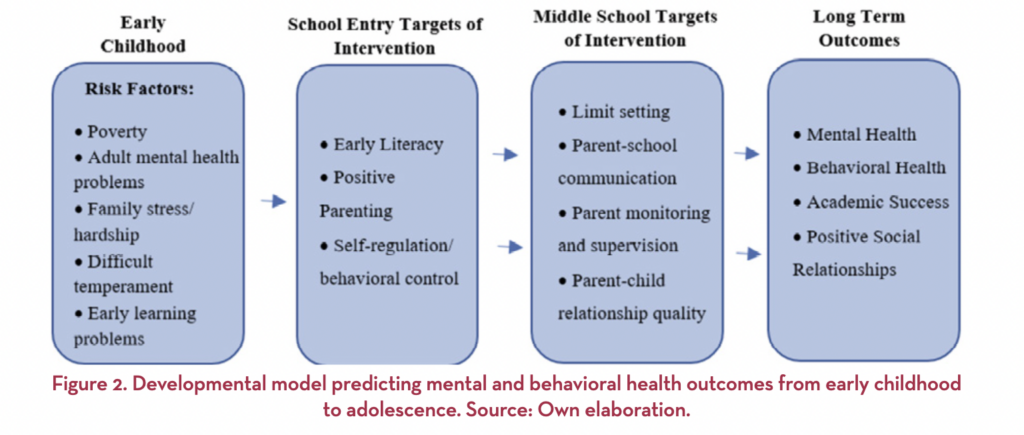
Theory of Change and Developmental Model
Guided by a developmental model of adaptation and risk behavior, the FCU is grounded in literature that focuses on parenting practices and family relationships as the core protective factors for preventing mental health distress and the later development of problem behavior through adolescence (e.g., Fosco et al., 2012). Decades of developmental research confirm that family relationships and parenting skills are key intervention targets that reduce mental health distress and problem behavior in youth and, if delivered as prevention during early childhood, school-age, or adolescence, these interventions are effective at sustaining long-term improvements in mental health into the adult years (Connell et al., 2023; Figure 2).
Contextual stress and early risk factors, such as poverty, stressful life events, adult mental health problems, and early learning and behavior problems, directly limit parents’ ability to use effective parenting strategies at home. Parenting skills, including positive and proactive parenting, predict self-regulation and behavioral control as children enter school. Self-regulation skills, in turn, predict school adjustment, including school engagement, reductions in problem behavior, positive social relationships, and academic achievement…Read More.
Originally published in the 46th issue of Pedagogía Social Revista Interuniversitaria.
Elizabeth A. STORMSHAK, Anne Marie MAURICIO, Anna Cecilia MCWHIRTER and Lisa REITER]SIPS – PEDAGOGÍA SOCIAL. REVISTA INTERUNIVERSITARIA [(2025) 46, 59-73] TERCERA ÉPOCACopyright © 2015 SIPS. Licencia Creative Commons Attribution-Non Commercial (by-nc) Spain 3.0
SSN: 1989-9742 © SIPS. DOI: 10.7179/PSRI_2025.46.03http://recyt.fecyt.es/index.php/PSRI/
